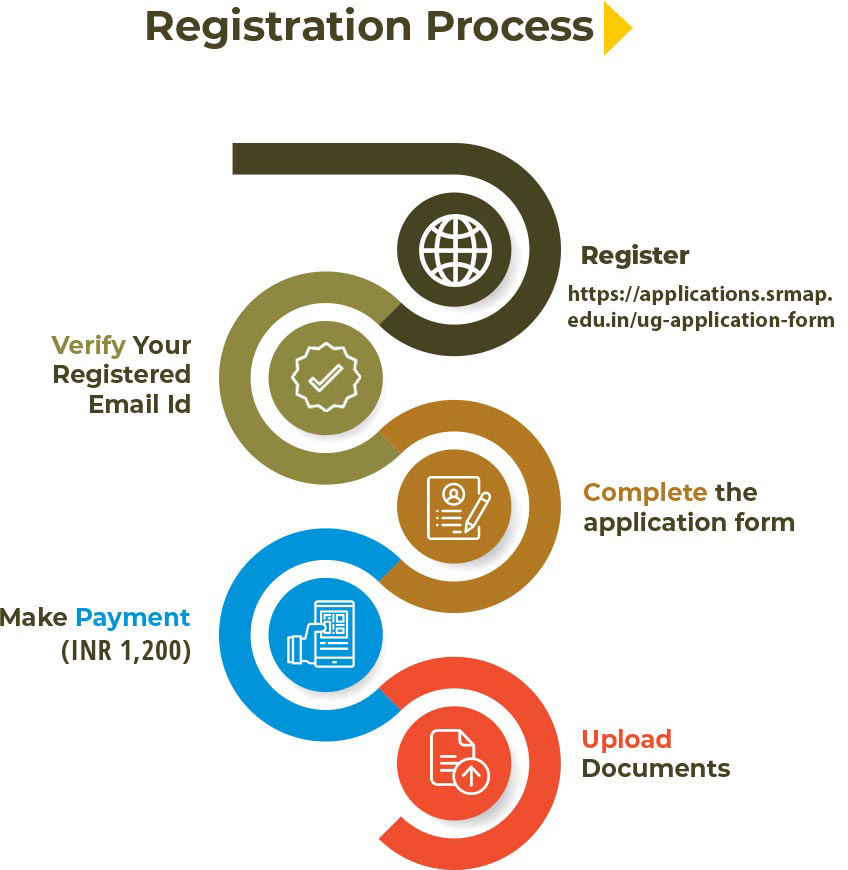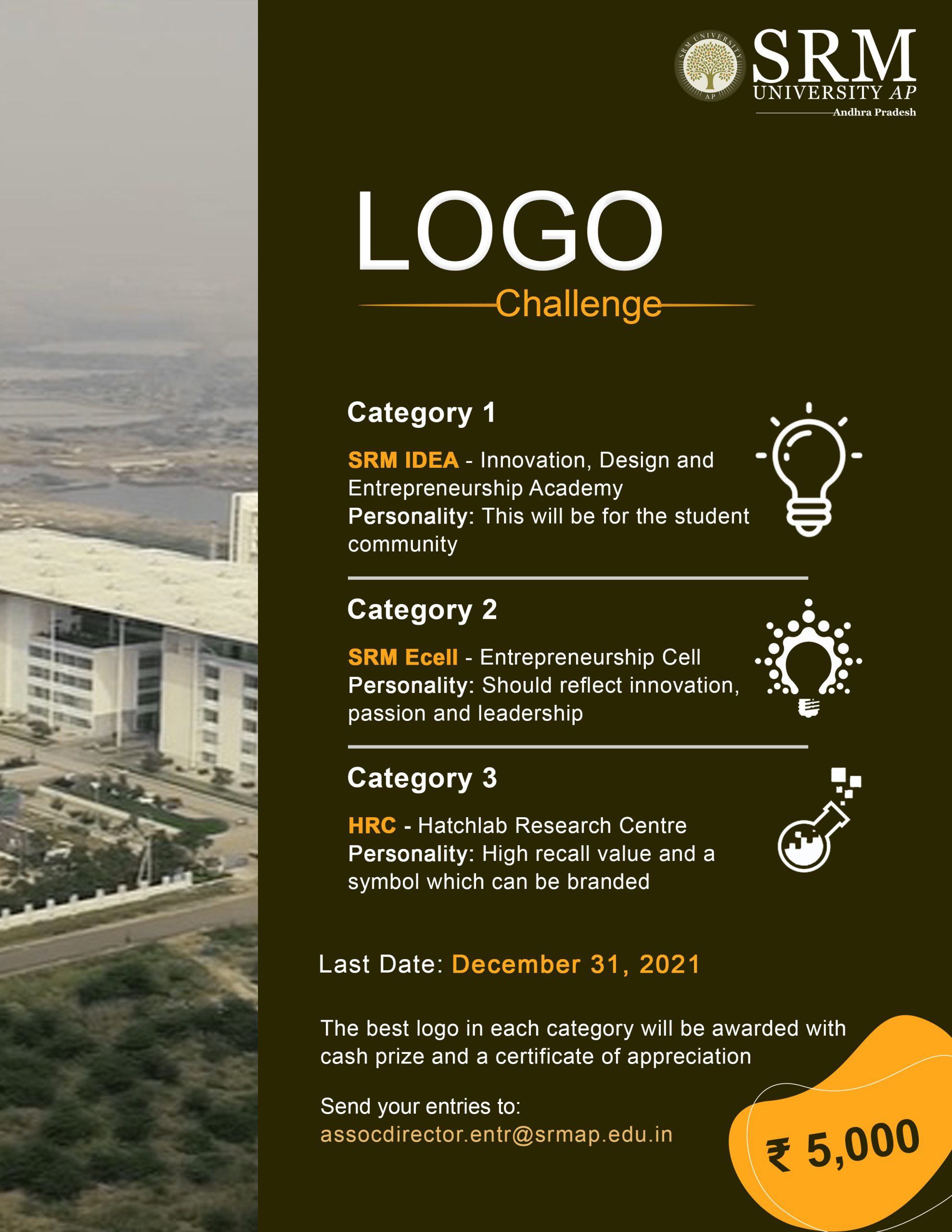- Dr Inbarasan Muniraj receives SERB-SRG-DST grant to improve low light imaging December 22, 2021
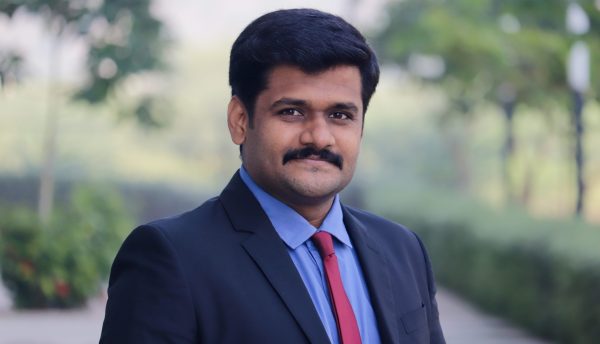 Imaging various three-dimensional (3D) objects under ultra-darkness is a fascinating process. However, our conventional cameras are not intelligent enough to capture the experience. Dr Inbarasan Muniraj, Assistant Professor in the Department of Electronics and Communications Engineering, is all about changing that.
Imaging various three-dimensional (3D) objects under ultra-darkness is a fascinating process. However, our conventional cameras are not intelligent enough to capture the experience. Dr Inbarasan Muniraj, Assistant Professor in the Department of Electronics and Communications Engineering, is all about changing that.Dr Inbarasan Muniraj’s project, “Sensing in the dark: An automated off-focused points detection and removal from the photons starved 3D volumetric dataset”, has received a SERB-SRG-DST of Rs. 20.8 lacs for a two-year duration.
Dr Muniraj describes his project as such,
“Assume that there is no external light, e.g., a dark room, when you capture an image using a camera (mobile or DSLR). Often, the captured images will look dark, and it is too difficult tointerpret anything from the picture. However, algorithms have been developed to make use of the low scattered photons from a scene to estimate the equivalent normal intensity image. We use one such technique to generate photons-counted images for a 3D object and perform a 3D image reconstruction. One of the major problems in 3D reconstruction is off-focused points which look blurry and redundant. Therefore, in this project, we aim to employ a deep learning technique to smartly recognise and remove the off-focused points from a reconstructed 3D scene under photons starved conditions.”
Dr Inbarasan Muniraj is the sole investigator of this project. According to him, there are much more extensive social implications associated with this project. To note, this technique can be extended for various applications such as night vision, security, and biomedical imaging etc.
- SRMJEEE 2023 : Complete and Latest Information December 22, 2021
B.Tech – SRMJEEE Application 2024
If you are here, then the chances are that you already know that SRMJEEE 2024 is the Joint Engineering Entrance Examination held by the SRM Institute of Science and Technology. Appearing for SRMJEEE 2024 is a very convenient method to get into one of the finest research institutes in any part of the country.
Through SRMJEEE 2024, you can become a part of SRM University-AP. Innovation and research at SRM University-AP are multidisciplinary and cutting-edge. You can be a part of one of the most advanced classrooms, learn from exclusive field experts from India and abroad, even take up a semester abroad yourself, and much more.
Are you interested in applying? You are just one simple click away from the smoothest application procedure.
Application for Admissions 2024 is Opened!.Want to know more? Don’t worry. We will walk you through the entire process. This is as simple as it gets.
Table of Contents
- SRMJEEE 2024 Important Dates
- SRMJEEE 2024 Admission Process
- SRMJEEE 2024 Examination Question Pattern
- SRMJEEE 2024 Syllabus
- SRMJEEE 2024 Eligibility
- SRMJEEE 2024 Application Process
2. SRMJEEE 2024 Admission Process:

3. SRMJEEE 2024 Examination Question Pattern:
- Each question carries one mark. There are NO negative marks. You are encouraged to attempt every question.
- The mode of examination will be online.
- The question paper type will be MCQs or Multiple Choice Questions only.
- The question paper will be in English ONLY.
- Physics- 35 questions
- Chemistry- 35 questions
- Mathematics/Biology- 40 questions
- Aptitude- 10 questions
- English- 5 questions
- Total number of questions- 125
- Total time: 2.30 hrs
SRMJEEE Sample Papers Download Link SRMJEEE Question Papers 2023 Download Here SRMJEEE Question Papers 2022 Download Here SRMJEEE Question Papers 2019 Download Here SRMJEEE Question Papers 2018 Download Here SRMJEEE Question Papers 2017 Download Here SRMJEEE Question Papers 2015 Download Here 4. SRMJEEE 2024 Syllabus:
5. SRMJEEE 2024 Eligibility:
A. Nationality and Age
Resident or Non-Resident Indian (NRI), holder of PIO or OCI card issued by Government of India are eligible to apply for the SRMJEEE 2024 selection process.
Note: NRIs, holders of PIO or OCI card issued by the Government of India, must apply under the International student category only.
Should have attained the age of 16 + on the 31st July of the Calendar year in which the 12 Board or Qualifying examination is to be held.
B. Eligibility to apply for the Qualifying Examination:
A Minimum aggregate score of 60 % or equivalent grade point in Class X.
A minimum aggregate score of 60% or equivalent grade point in Physics, Chemistry, and Mathematics in Higher Secondary Examination (10+2) / Intermediate (First and Second year) or from any Indian education boards recognised by the Board of Higher Secondary Education, Delhi (CBSE, CISCE, and State Education Boards recognised by Board of Higher Secondary Education) (https://www.bhsedelhiboard.net/List-of-recognised-board-in-India), International Baccalaureate (IB) diploma or IB certificate ( https://www.ibo.org/ ) or University of Cambridge General Certificate of Education (GCE) A-level with Physics, Chemistry, and Mathematics as compulsory subjects. (https://www.cambridgeinternational.org/ )
Students appearing for their Class/Standard XII final board examinations in the current academic year are also eligible to apply for SRMJEEE 2024. However, admission is confirmed based on meeting the minimum aggregate score of 60% or equivalent grade in Physics, Chemistry, and Mathematics.
C. Criteria for Admission
Admission will be based on meeting the eligibility conditions listed in Section A and Section B and the performance in the qualifying examination, i.e., SRMJEEE / SRMAPET.
The decision of the admission committee will be final and binding.
Continue reading → - BSc Biology student to intern at Harvard Medical School December 21, 2021
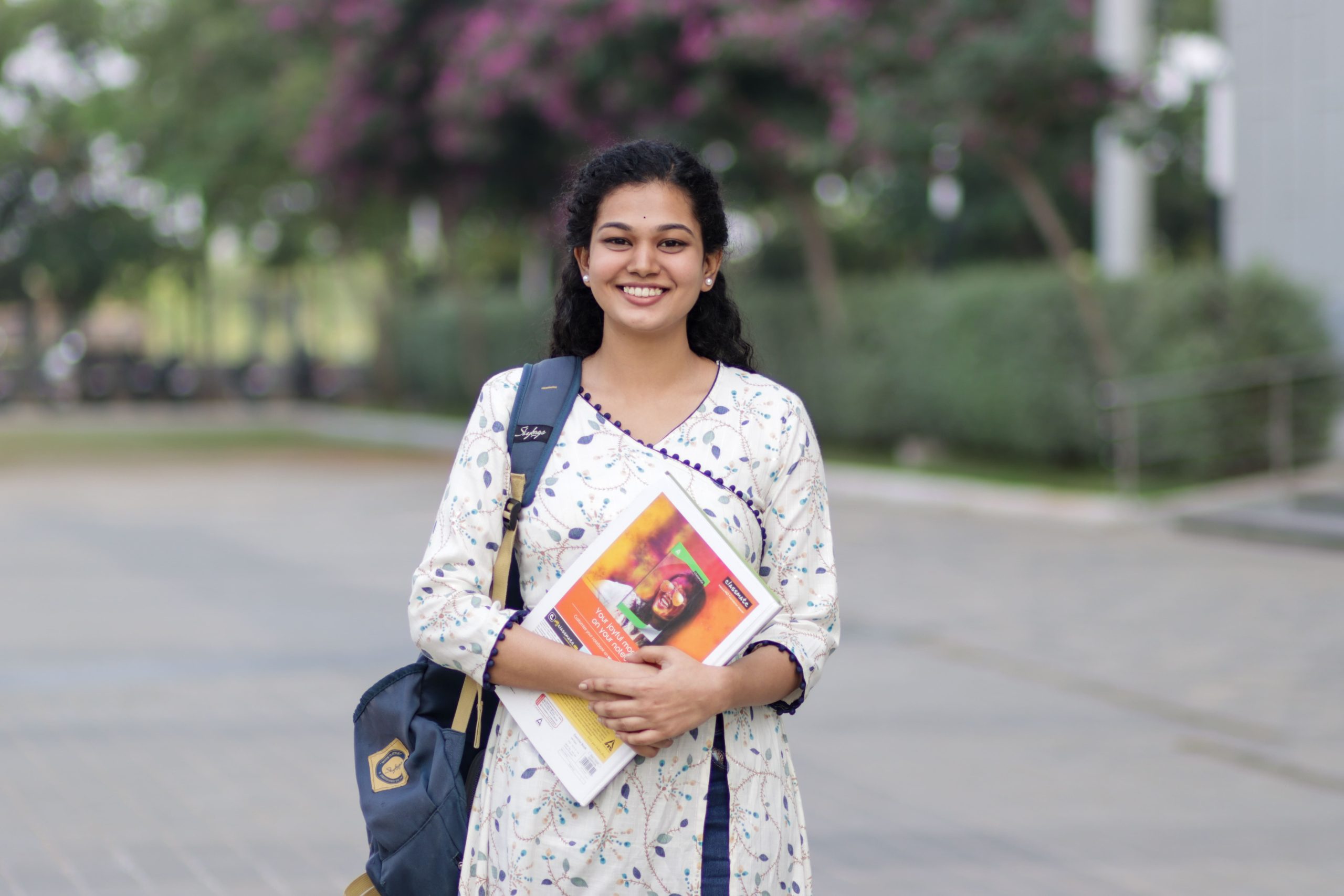 Rallapalli Bhavana Durga, a budding researcher from BSc Biology at SRM University-AP, earns an international internship at Harvard Medical School. The six-month internship will focus on bioengineering, cancer, and other biomedical research. The days at Harvard Medical School will impart an understanding of the development of cancer in an in-vitro model fabricated by the bioengineering approach.
Rallapalli Bhavana Durga, a budding researcher from BSc Biology at SRM University-AP, earns an international internship at Harvard Medical School. The six-month internship will focus on bioengineering, cancer, and other biomedical research. The days at Harvard Medical School will impart an understanding of the development of cancer in an in-vitro model fabricated by the bioengineering approach.The Office of International Relations and Higher Studies guided Ms Bhavana throughout the application process. Every eligible student who applies for study abroad programmes is given orientation and motivation to bridge the attainment gap. They share information about various research/internships/projects with interested students. Ms Bhavana qualified the eligibility criteria for Harvard Medical School, which focuses on Tissue engineering and other Biomedical engineering fields. After completing the screening, she received a welcome e-mail for the internship at Dr Shiladitya Sengupta & Haelin Jang’s lab in Brigham and Women’s Hospital, Harvard Medical School. During the internship period, she will be involved in i) research-related activities involving the hands-on discovery of new biological pathways in cancer metastasis and (ii) writing for publications.
“I have received a lot of support from my professors and Dr Swetha Pasupuleti, Associate Director, International Relations”, says Ms Bhavana. “From the beginning, all my professors have been very encouraging, and their suggestions and criticisms were constructive. Dr Swetha has been very supportive and reassuring during the application process, taking away my inhibitions. I feel excited about my internship”, she added.
To tackle barriers to postgraduate education, SRM University-AP has designed ambitious programmes that improve the admission of students to global institutions. International Relations and Higher Studies department ensure that all students and faculty on campus are supported and assisted in gaining access to resources in order to achieve the vision and mission of SRM University-AP in becoming a multidisciplinary global university.
Continue reading → - Eminent Lecture Series with Prof Haribabu Ejnavarzala December 21, 2021
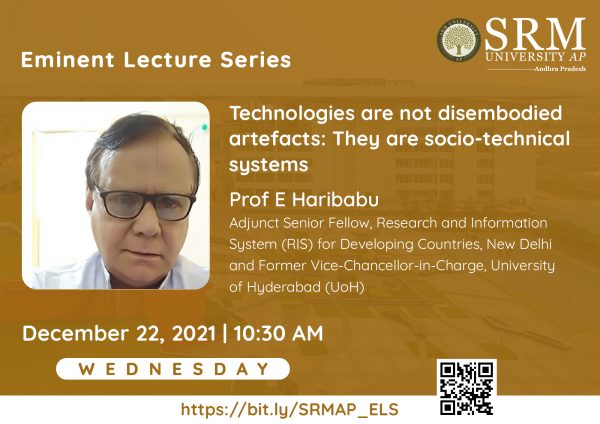 Technology is deeply integrated into the human society. The Department of Management Studies invites you all to the Eminent Lecture Series with our guest Prof Haribabu Ejnavarzala, for an engaging session on the economic, social, and other impacts of new technology on our lives.
Technology is deeply integrated into the human society. The Department of Management Studies invites you all to the Eminent Lecture Series with our guest Prof Haribabu Ejnavarzala, for an engaging session on the economic, social, and other impacts of new technology on our lives.Topic: Technologies are not disembodied artefacts: They are socio-technical systems
Date: December 22, 2021
Time: 10.30 am IST
About the Speaker:
Prof Haribabu Ejnavarzala is an Adjunct Senior Fellow, Research, and Information System (RIS) for Developing Countries, New Delhi and Former Vice-Chancellor-in-Charge, University of Hyderabad (UoH).
Abstract:
Technologies are socio-technical systems. The forces that shape the development of technology are social, economic, cultural, political, and ethical in nature. A technology introduced into society has consequences for interrelated domains -social (class, caste, gender relations), economic, political, cultural, and ethical. Technologies also affect the environment- water, soil, air, and non-human forms of life. In other words, technologies are embedded in societal and environmental contexts. In order to understand the values and interests underlying the construction of technological innovation and its consequences, we have to unpack the design of a given technology and its associated practices. Technologies are intricately related to the interests and meaning structures of stakeholders. In this lecture, I focus on genetic modification of crops to show that it is a socio-technical system deeply connected with interests, sometimes conflicting interests, and meanings of relevant stakeholders – farmers who use the technology, consumers of products produced by genetic modification of crops, government, regulatory agencies, judiciary, and civil society organisations in the Indian context. In conclusion, I argue that innovations that promote equity, inclusivity and justice will have more significant social acceptability.
Please join this spirited session with our eminent guest on December 22, 2021, at 10.30 am IST for the next edition of Eminent Lecture Series.
Continue reading → - Logo design contest for students December 17, 2021


